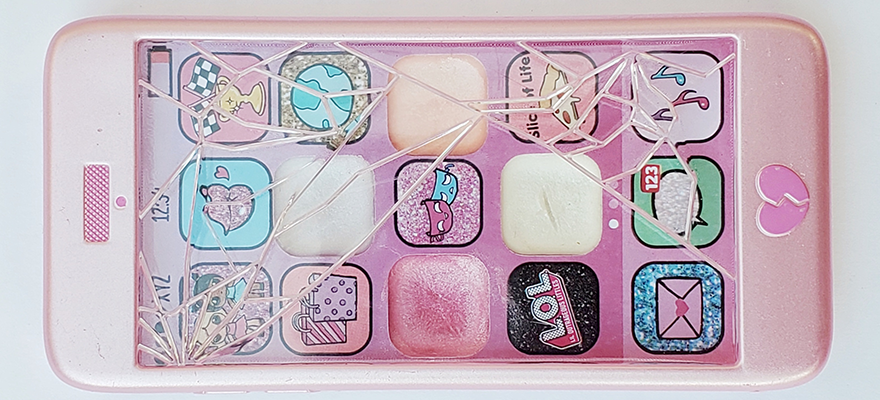FIMS News
Contact Information
FIMS Communications
Becky Blue
Email
519-661-2111x88493
FIMS & Nursing Building
Rm 2060C
Resisting the Inevitable Through Repair
 By Michaela Richardson
By Michaela Richardson
April 2022
Assistant Professor Alissa Centivany is researching the answers to the existential questions that make us human.
We all know the three Rs: reduce, reuse, recycle. But Western University Professor Alissa Centivany is adding a fourth: Repair.
Centivany, who is a professor in the Faculty of Information & Media Studies (FIMS), specializes in intellectual property and technological law, and her interest in repair started after learning about an unexpected dilemma. A few years ago, she read in the news that John Deere, a billion-dollar machinery company, was installing digital codes in their tractors; codes that are necessary to reset the system or make repairs. The farmers don’t have access to the codes and so are forced to pay the company to get their tractors fixed. This arrangement effectively allowed John Deere to monopolize the farmers' repair markets, leaving tractor owners no choice in the matter. The solution? Ukrainian hackers used the dark web to post the codes the North American farmers needed.
The tractor codes are an example of a digital lock. Digital locks, which are more and more widely used across many industries, are meant to prevent users from accessing device firmware and are supported in Canada’s Copyright Act.
key discovery
Everything deteriorates and breaks down, but repair can delay this inevitable reality. Through her research, Centivany has found that treating objects as disposable, or not having the option to fix them, affects us on a human level.
"What on earth does copyright law have to do with a farmer being able to fix their tractor?" asks Centivany. This initial question was the starting point of a wider look at the right-to-repair movement. "It was a compelling story about this trend we've seen historically of rights holders who continually encroach upon the everyday practices of normal people," she says.
Since 2018, Centivany has been engaged in a SSHRC-funded research project titled, Smart Tractors and Agrohackers: Computerization, Copyright and the ‘Right to Repair’ Movement in the North-American Farming Industry. She has also explored the topic through the collaborative Big Data at the Margins project, holding an event in October 2021 titled, The Right to Repair: Struggles Over Digital Tools and Consumer Rights. Right to repair is about more than just consumer rights. It also has environmental, social and cultural implications.
"As a culture, we have a bad habit of overconsumption. As a result, our consumption is creating devastating damage to the planet,” says Centivany. Restrictions on repairing tools and devices only make this worse, and manufacturers support wasteful habits by limiting the useful lifespan of the material items that we use everyday. Without a healthy repair market, physical objects that we use daily inevitably get disposed of instead of repaired.
There are also social and cultural consequences that result from a culture that prioritizes production over repair. Centivany acknowledges that “everything breaks eventually: our bodies, our stuff, our relationships. It's just an inescapable fact of existence."
But treating everything as disposable weakens our connection to our things.
"I think it's pretty damaging when we take on a passive-consumptive relationship to things and people. We start losing the ability to value the history of items or the value of continuity."

Repairing can be as simple as repurposing an empty egg carton into a garden seedling container, or cutting old towels into cleaning rags, and Centivany says, "the ability to fix things improves our autonomy and helps foster relationships. It feeds our innate desire for curiosity and creativity."
Since learning about the John Deere case, Centivany’s interest in repair has expanded into different kinds of objects and methods of repairing. She is a collaborator on the "Open Gaza Initiative" and works with Glia, a medical hardware company based in London, Ontario, to send medical supplies to doctors in the Gaza Strip. This initiative focuses on using 3D printers to create replacement parts and open-source devices for doctors who have restricted access to supplies, so they can repair essential items.
Centivany has also collaborated with Reimagine Co., a zero-waste grocery store located in downtown London, to build a Thing Library. This project encourages community members to reduce waste by repairing items they would typically throw away. The library is a space where people can share skills and check out tools to repair their own things.
Centivany hopes that people will start to incorporate the fourth R into their everyday life. There are opportunities for repair everywhere. Whether it’s looking at the mechanics behind a tractor or upcycling an old item, the power of repairing should not be overlooked.
----
This profile is part of a series written by graduate students in MMJC 9604 Professional Writing, during the Winter 2022 term. Profiles have been edited by FIMS Communications staff for clarity.


